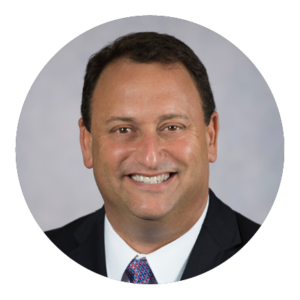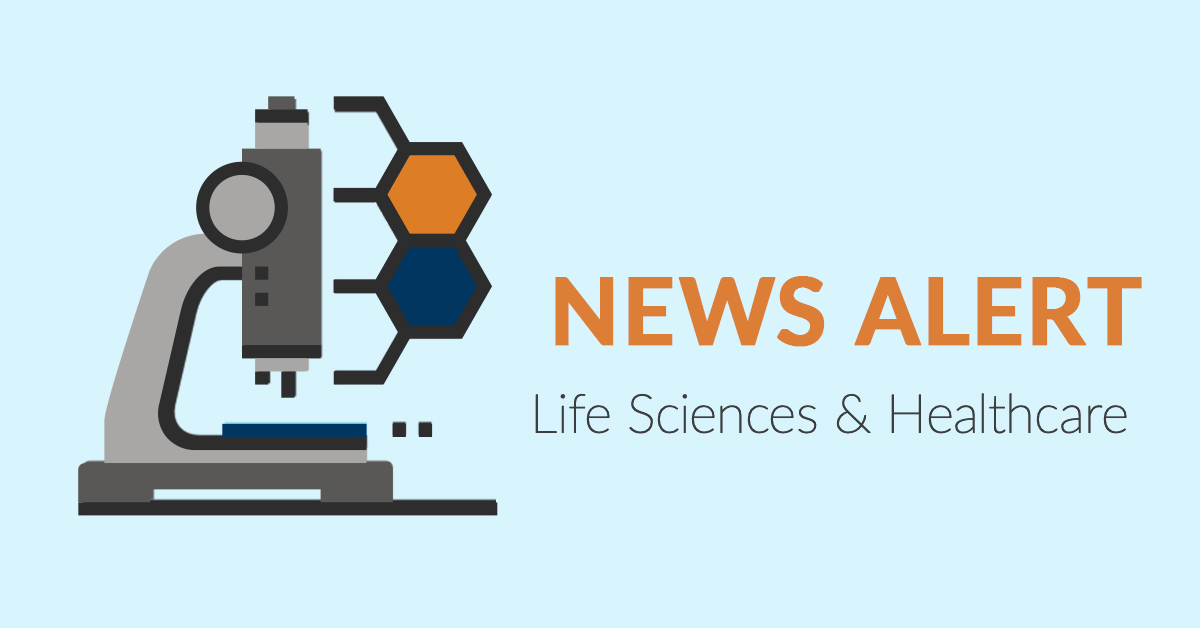Investor Spotlight: Tampa General Hospital
January 22, 2019
 Tampa General Hospital, a 1010-bed not-for-profit academic medical center, delivers world-class care as the region’s only center for Level l trauma and comprehensive burn care. It is one of the nation’s busiest adult solid organ transplant centers and is the primary teaching hospital for the USF Health Morsani College of Medicine. Advancing medicine through innovation, Tampa General houses a nationally accredited comprehensive stroke center, an 82-bed Level IV neonatal intensive care unit, and a state-certified spinal cord and brain injury rehabilitation center. For more information, go to www.tgh.org.
Tampa General Hospital, a 1010-bed not-for-profit academic medical center, delivers world-class care as the region’s only center for Level l trauma and comprehensive burn care. It is one of the nation’s busiest adult solid organ transplant centers and is the primary teaching hospital for the USF Health Morsani College of Medicine. Advancing medicine through innovation, Tampa General houses a nationally accredited comprehensive stroke center, an 82-bed Level IV neonatal intensive care unit, and a state-certified spinal cord and brain injury rehabilitation center. For more information, go to www.tgh.org.
John D. Couris, President and CEO
John D. Couris is a nationally recognized leader in the health care industry. Prior to joining Tampa General Hospital, Couris served as president and chief executive officer of Jupiter Medical Center, the region’s leading medical center. Under his leadership, Jupiter Medical Center expanded its services and forged innovative partnerships with some of the leading organizations in the nation. During his tenure, Jupiter Medical Center completed a $50 million expansion plan, installed $30 million in medical technology and established the hospitals’ new pediatric wing as well as the oncology campus. He also led the organization in their efforts of raising $300 million to meet the region’s growing demand for critical health services.
 As our region’s only level 1 trauma center, TGH is one of our community’s most important assets. U.S. News and World Report consistently ranks your hospital a best hospital, and you have a top-rated transplant center that has performed more than 10,000 transplants. What do you owe to this success and how do these accolades benefit the hospital, and the Tampa community as a whole?
As our region’s only level 1 trauma center, TGH is one of our community’s most important assets. U.S. News and World Report consistently ranks your hospital a best hospital, and you have a top-rated transplant center that has performed more than 10,000 transplants. What do you owe to this success and how do these accolades benefit the hospital, and the Tampa community as a whole?
I attribute it to our people. It’s a very simple equation. Our people are truly outstanding. If you look at our results and the impact that we have in this region, and in this city, it is truly remarkable. I attribute it to our board of trustees, our physicians, our administrators, our team members, our allied health professionals and, most importantly, our nurses at the bedside. They’re the ones who make a difference.
Every person in this organization understands our goals, strategies and what is most important to TGH and the community. And it is simply this: Tampa General Hospital will be the safest and most innovative hospital in America. We have a new vision and strategic plan. Over the next decade, we will become the safest and most innovative institution in our country. It starts within our own region and then it grows throughout the state and the Southeast. Doesn’t our community deserve the very best? So that is the path we’re on. We may not be the largest system in the region, but we will be the best system in the region.
One of the things I do with the team twice a year is what we call team member forums and every single one of our team members participate. We presented our new vision and our new strategic plan there, so everyone knows and understands the direction that we’re going in as an institution. More importantly, they understand why we’re going in this direction. So, when you take all of that and bring it together in a well-coordinated way, it drives the kind of results asked about.
In your blog, Leading the Change, you write about leadership and critical issues facing the health care industry. What’s the most pressing issue you see facing the health care industry today?
Reimbursement and how we get paid is a big issue. I don’t want to be overpaid or underpaid. I want to be appropriately paid. I think pricing transparency is critically important from a consumer perspective. We must do a better job as an industry articulating what it costs to get health care. We don’t do as good a job with that as we can or as we should. But I will tell you TGH is working on that every single day.
I also think that regulation is a pressing issue. In states like Florida, our legislators think that deregulating everything and letting the free market drive everything is the right thing to do. Because the free market will drive better quality, better costs, etc. But health care doesn’t operate in the free market. Free market principles do not apply for a hospital. We live in what is commonly referred to as a modified free market. If we were a true free market, we would turn away people that couldn’t pay, but that isn’t what we do. One of the things that attracted me to Tampa General Hospital is the fact that we have our roots in the idea that every single man, woman and child has the right to world-class health care regardless of their ability to pay. I believe that in my heart., It is part of who I am. I’m proud of the fact that every single person who walks through our doors gets treated the same way and is given world-class health care regardless of their socioeconomic status. But we don’t operate in a free market. Most things people come to us for we take care of regardless of your ability to pay. What free-market industry does that?
So, regulation is very important. We don’t need to be over-regulated, but we need to be appropriately regulated. The regulations that exist today in the state of Florida, in my opinion, are very good, they are appropriate, but they are being challenged because there are people in our legislature who believe everything should be deregulated and that the free market takes care of everything. Not so in health care.
The new USF Health Morsani College of Medicine and Heart Institute will open later this year in downtown Tampa as anchor to Water Street Tampa. As USF Health’s main teaching hospital, what impact will this new building and location have on TGH and your partnership with USF?
We are USF’s largest and oldest teaching hospital. We have more than 330 residency slots and fellowships, more than 50 training programs, and we have 600-700 trainees rolling through our institution on any given day. The fact that the medical school is connected to an academic medical center is very beneficial.
We’ll be able to share innovations more easily. We’ll be able to collaborate more readily, because I think proximity matters. What USF Health and TGH want to create is an innovations cluster around new medical advances, new technologies, new services, and new programs. So, by being closer together, having the Water Street project right here, we’re going to create a hub of innovation, a hub of collaboration, and a hub of true partnerships.
I think the community, and the region at large, are going to benefit significantly from our ability to collaborate and innovate faster. We’re not only getting closer geographically, but we’re collaborating in ways we haven’t collaborated in the last 40 years around medical science, new programs and new services. It’s an exciting time.
How do you think the new medical school will impact economic development in Tampa?
Medical excellence, a medical school and a teaching hospital like TGH will draw new companies, new innovations, and new people wanting to collaborate with us.
The closer we get, the bigger their school becomes and the more attractive it becomes to outside companies that want the clinical content and the intellectual capital that fits right in downtown Tampa. But it’s not just a downtown Tampa thing, it’s a whole regional impact. We become a driver. We become part of the nucleus of this new wave of innovation. I think it’s a huge benefit.
I’ll say this: Tampa as a region, TGH, and USF Health are all open for business. We’re ready to sit down with anybody who wants to be a real partner with us, who wants to help make the region better. We are open for business with people who are like-minded.
Availability of top talent is the top priority for companies we’re working with to recruit to the area, or local companies that are expanding. What are your thoughts on the local talent pool and how does TGH recruit and retain top talent?
We’re blessed because we have some great universities and colleges. The two that stick out because we do most of our work with them are USF and the University of Tampa. Dr. Genshaft has done an extraordinary job elevating the university from where it was to one of three preeminent universities in the state of Florida. It is nationally ranked in almost every area and growing with students and intellectual capital. But UT is doing the same thing. They are producing great students and engaging the community. We are fortunate to have two wonderful universities.
However, the two of those universities and the smaller colleges can’t do it alone. We have issues with our public school system, with transportation, and with some infrastructure. It makes it harder to retain the top talent that is being produced from these universities. It’s getting better every day, but we must face facts that we need to invest more in our public schools. We have a weak public school system, in my opinion, because we are underfunding teachers and administrators. And, privatizing the public school system isn’t necessarily the answer. How about investing in the assets and people that we have?
Transportation is great now that we have the penny tax. We (TGH) were big supporters of that. Why? Because I need better ways to move patients to our hospital who can’t afford any other way to transport themselves. I need better ways to transport some of my team members who need to get to work. But any great city has great transportation – Boston, New York, Chicago, Philadelphia. If we want to be the best in Florida don’t you think we should emulate the best? So, transportation is critically important.
And then there is infrastructure. We are blessed in that regard. We have a great mayor in our city and the infrastructure work he has done with parks and recreation, just as an example, has been tremendous. Infrastructure is incredibly important. It attracts talent. It retains talent. We must stay focused on that. Let’s not be penny-wise and pound foolish. We are no longer a place to go when you want to retire. We are much more than that. So many people have worked so hard at creating a very innovative, contemporary, young city. Let’s embrace it and let’s grow it. But we must invest in the things that I just shared, or we’ll never reach our full potential.


